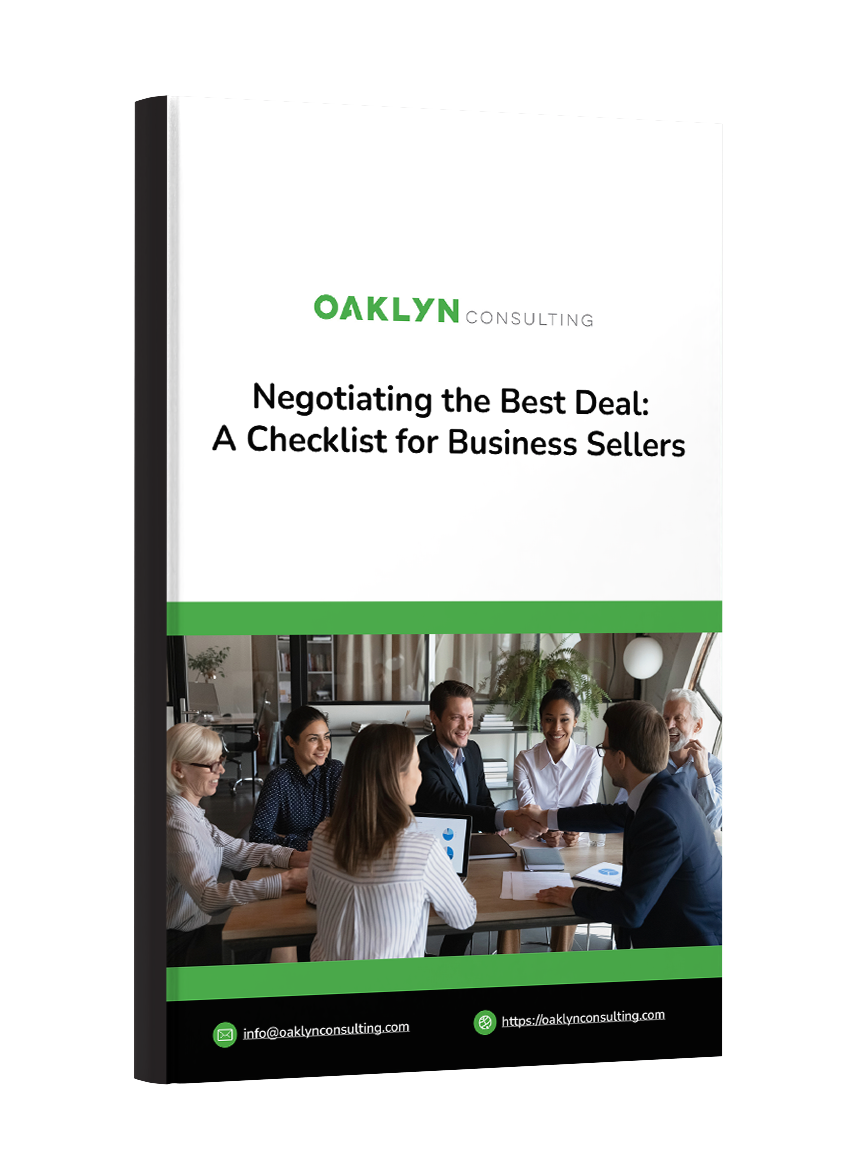A business sale is different from selling anything else due to its complexity and scale, not to mention the emotional factors involved. It’s a lot for any one person to take on, especially if they’re still actively running that business.

Finding the most effective investment banking partner for you starts by asking the right questions. Before engaging anyone as your investment banker, here are five questions you must ask:
1. What will you actually do to add value in my situation?
Investment bankers who are active in the market bring credibility that helps get deals done. Without a person who understands what deal terms mean, how deals should be structured and which capital providers to call, you’re left in a much less powerful position as you sell your business.
As you ask this question, listen for an answer that doesn’t just describe the basic steps in the process — identifying buyers or sources of capital, managing the distribution of a teaser and confidential information memorandum (CIM), and soliciting offers — but explains their approach toward strategy and planning.
Keeping in mind that recapitalizing or selling a company is an extended process with multiple offers and counteroffers, listen for how bankers set the table for negotiations, so that the right people are present and have the right expectations before discussions even begin. Listen for how they will save or possibly waste your time by ranking prospective investors/acquirers. And especially, listen for how they see their roles as part of a team of experts who will together close a successful transaction: you (and other company executives or board members) an attorney, a tax advisor or CPA, and a financial planner.
2. Do you even like working with companies like mine?
You might be surprised to learn that for some investment bankers, the answer will be “no” if they are being candid.
The investment banking industry is highly specialized, and investment bankers who mostly work with large companies might prefer to stay in that lane because they feel they have more to offer — such as a good working relationship with the leading players in a particular industry’s largest companies. Even among the bankers who serve smaller companies, many have clear preferences. They might enjoy working on the biggest deals in their market segment, or with the clients that are the most prepared for a transaction (which usually means that they’re already owned by professional investors), or with those that are able to make decisions purely on deal economics rather than social factors.
Press them not just for who they work with, but who they LOVE to work with. Who is their IDEAL client? Does that profile include you?
At Oaklyn Consulting, for example, we specialize in small and complex deals that might not make financial sense for large investment bankers to focus their limited time on. We intentionally work with these types of clients and deals because we love the impact that we can have for entrepreneurs, employees, family members and, in the case of nonprofits, their social mission. Because our clients’ deals look complicated or unprofitable to our peers, we’re not in competition with other investment bankers and view our work as complementary to theirs. They serve one particular need in the market, while we serve another.
3. You will guide me on a journey that could take months. How will this journey go?
The journey an investment banker guides you on has several distinct phases:
- Identifying potential partners in a deal, quantifying a case for why a business might be valuable to certain prospects, then deciding on a game plan to test demand among potential buyers;
- Setting the table for the negotiation process against expert counterparties by assembling any necessary data, creating executive summaries and doing other necessary prep work;
- Representing you in a multi-party, high-stakes negotiation that will take months, with multiple offers and counter-offers; and
- Building a fruitful post-deal working relationship while also getting the best available deal terms and protecting them through post-deal cleanup.
If there are no unexpected roadblocks along the way, a 10- to 12-month timeline is about average. The path to a successful deal contains many pitfalls, dead-ends and opportunities to waste time or money. It’s easy to get distracted by drama or backed into a corner.
Your banker should be able to characterize the potential deal partners, help you understand the likely pitfalls and traps, and give you clear direction about the easiest path to succeed at your goals.
At Oaklyn Consulting, we believe that the preparatory work matters a lot — choosing deal partners, qualifying their interest and creating a productive environment for the coming negotiation — and getting this part right will make everything else go better.
4. Do you stay involved the whole time?
Many investment bankers will not say yes to this question because they see their role as one component in a larger transaction.
The principals in a deal will be involved from the very beginning to the very end: from the initial identification of a need and the parties to solve it, through negotiations, closing, and the eventual combination of operations and teams. Along the way, there will be times when each member of a deal team (banker, lawyer, accountant, executives, etc.) takes the lead.
Sometimes, out of respect for others’ roles, specialists make the choice to stay completely absent at various points. Other times, though, it’s more important that everyone see themselves as an active part of a team, working together toward a joint outcome. Listen for an answer that aligns with your vision of how your advisors should interact with one another.
What distinguishes us at Oaklyn Consulting is our high-level, white-glove service, which extends through the entire deal process. We value the deal-team framework for how advisors serve a client. Therefore, for example, we stay attentive as legal documentation moves forward, serving as an intermediary to help resolve any sticky business issues that come up. At any stage, a deal can easily fall apart because of apparently small details. We stay with clients all the way to the end, looking out for and guiding them through dangerous, uncertain or unexpected spots.
5. What do past clients say about you?
Any investment banker will happily show you their deal history, which can be helpful for knowing the types of clients they’ve worked with in the past. But choosing an investment banker isn’t solely about experience; it’s a trust-based relationship that will be a major part of your life for about a year. You’ll experience many highs and lows together along the way, some of which can be stressful. So, it’s important to work with somebody you like and feel you can rely on.
Ask your investment banker if you can talk with some of their previous clients, then listen to what those clients have to say. Did they have an OK experience, or do they rave about it? If they don’t rave, consider why that might be.
At Oaklyn Consulting, we love putting prospective clients in touch with former clients, because people rave about working with us. We bring a combination of expertise and personalized service that makes clients feel valued, comfortable and well taken care of.
If you’re considering a sale, a purchase, or have another kind of complex business situation, we’d love to talk with you about how we can be of assistance.

Negotiating the Best Deal: A Checklist for Business Sellers
Successfully selling a business can be challenging as the process entails careful planning, strategic thinking, and the ability to negotiate effectively to ensure the best deal possible.
Every deal is different, but you can get the best possible outcome by following these five steps.
Download your free copy today.
